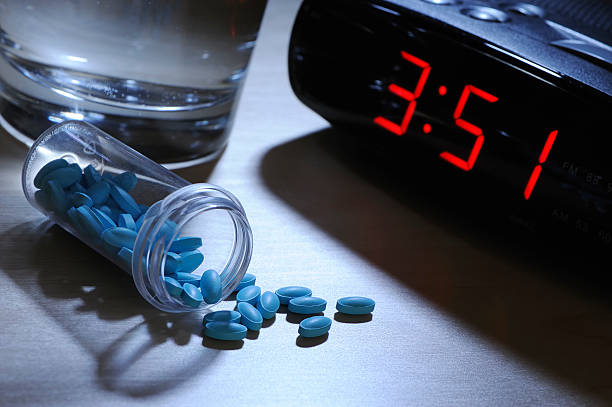How Does Zopiclone Work?
Zopiclone works by increasing the activity of a chemical in the brain called gamma-aminobutyric acid (GABA). GABA is an inhibitory neurotransmitter that suppresses excitatory transmitters such as dopamine, serotonin and acetylcholine.

Taking high doses of zopiclone can cause a wide range of health problems and addiction in some people. Therefore it is not recommended for long-term use.
It increases the activity of the neurotransmitter GABA
Zopiclone works by binding to a receptor in your brain called the gamma-aminobutyric acid type A (GABAA) receptor. This helps you fall asleep more quickly and sleep longer throughout the night.
It also reduces the number of times you wake up in the middle of the night. GABA is a naturally occurring chemical in the brain that helps calm you down and promotes sleep, Click over here.
A lot of people take GABA supplements to reduce their blood pressure and protect their sleep. Studies show that people who have low levels of GABA have a harder time sleeping.
Zopiclone binds selectively to the alpha subunit of the brain GABAA omega-1 receptor. It works by boosting the activity of this receptor and enhancing the action of a neurotransmitter known as GABA.
It increases the activity of the neurotransmitter acetylcholine
Zopiclone increases the activity of the neurotransmitter acetylcholine (also known as ‘the brain’s natural sedative’). This helps to slow down or stop the firing of other nerve signals in the brain.
Taking zopiclone can also help you to stay asleep all night and sleep better during the day. It can also be used to treat certain types of anxiety.
It can be taken as a tablet or liquid medicine. The usual dose is 7.5 mg just before you go to bed. A lower dose of 3.75 mg may be recommended for elderly people who have kidney or liver problems.
If you take too much zopiclone it can make you feel drowsy, confused, or have difficulty breathing. It can also make you fall into a coma.
It can also be addictive. It can make you dependent on it, and withdrawal symptoms can include severe anxiety, tremor, and palpitations. These can be more likely if you have used it for long periods of time, or if you have taken it with other medicines that affect your central nervous system (CNS).
It increases the activity of the neurotransmitter dopamine
Zopiclone works by increasing the activity of a neurotransmitter called gamma-aminobutyric acid (GABA). GABA is a natural ‘nerve-calming’ agent that helps you fall asleep, reduces anxiety and relaxes muscles.
It can also help you stay asleep for longer and wake up more refreshed during the night. The main use of this medication is to treat sleep problems, such as insomnia.
Your doctor will prescribe it for a short period of time, usually up to four weeks. Don’t take it for longer than this, as it can become less effective and you may develop a tolerance to it.

If you are over 65 years old, zopiclone can cause drowsiness or dizziness, so it is best to use lower doses. You should talk to your doctor if you are unsure what is the right dose for you.
This medication can increase your risk of suicidal thoughts or attempts, so it is important that you tell your doctor if you have any thoughts of suicide. This medicine also passes into breast milk and could harm your baby if you are breastfeeding.
It increases the activity of the neurotransmitter serotonin
Zopiclone is a cyclopyrrolone (chemical class) drug that works to help you sleep better. It increases the activity of a neurotransmitter called GABA in your brain, which is involved in calming your nerves and relaxing your muscles.
It also increases the levels of serotonin in your brain, which helps you relax and get a good night’s sleep. This is how it helps you to fall asleep quicker and stay asleep longer, waking up feeling refreshed.
There are some rare side effects of zopiclone, including getting out of bed and driving a vehicle while you’re not fully awake (sleep-driving). It can also make you sleepwalk, eat food or have phone calls that you don’t remember when you wake up.
If you have these side effects, stop taking zopiclone and tell your doctor straight away. They may prescribe other medicines to treat these effects.
Summary:
When you stop taking zopiclone, it’s best to reduce your dose slowly over a few days or weeks to avoid the chance of any withdrawal symptoms. This is especially important if you’re taking other medicines.
